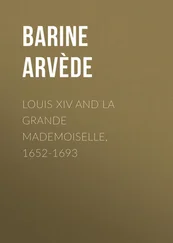Louis Saint-Simon - Memoirs of Louis XIV and His Court and of the Regency. Volume 02
Здесь есть возможность читать онлайн «Louis Saint-Simon - Memoirs of Louis XIV and His Court and of the Regency. Volume 02» — ознакомительный отрывок электронной книги совершенно бесплатно, а после прочтения отрывка купить полную версию. В некоторых случаях можно слушать аудио, скачать через торрент в формате fb2 и присутствует краткое содержание. Жанр: Биографии и Мемуары, История, foreign_edu, foreign_antique, foreign_prose, на английском языке. Описание произведения, (предисловие) а так же отзывы посетителей доступны на портале библиотеки ЛибКат.
- Название:Memoirs of Louis XIV and His Court and of the Regency. Volume 02
- Автор:
- Жанр:
- Год:неизвестен
- ISBN:нет данных
- Рейтинг книги:5 / 5. Голосов: 1
-
Избранное:Добавить в избранное
- Отзывы:
-
Ваша оценка:
- 100
- 1
- 2
- 3
- 4
- 5
Memoirs of Louis XIV and His Court and of the Regency. Volume 02: краткое содержание, описание и аннотация
Предлагаем к чтению аннотацию, описание, краткое содержание или предисловие (зависит от того, что написал сам автор книги «Memoirs of Louis XIV and His Court and of the Regency. Volume 02»). Если вы не нашли необходимую информацию о книге — напишите в комментариях, мы постараемся отыскать её.
Memoirs of Louis XIV and His Court and of the Regency. Volume 02 — читать онлайн ознакомительный отрывок
Ниже представлен текст книги, разбитый по страницам. Система сохранения места последней прочитанной страницы, позволяет с удобством читать онлайн бесплатно книгу «Memoirs of Louis XIV and His Court and of the Regency. Volume 02», без необходимости каждый раз заново искать на чём Вы остановились. Поставьте закладку, и сможете в любой момент перейти на страницу, на которой закончили чтение.
Интервал:
Закладка:
M. de Monaco, who had obtained for himself the title of foreign prince by the marriage of his son with the Duchesse de Valentinois, daughter of M. le Grand, and who enjoyed, as it were, the sovereignty of a rock—beyond whose narrow limits anybody might spit, so to speak, whilst standing in the middle—soon found, and his son still more so, that they had bought the title very dearly. The Duchess was charming, gallant, and was spoiled by the homage of the Court, in a house open night and day, and to which her beauty attracted all that was young and brilliant. Her husband, with much intelligence, was diffident; his face and figure had acquired for him the name of Goliath; he suffered for a long time the haughtiness and the disdain of his wife and her family. At last he and his father grew tired and took away Madame de Valentinois to Monaco. She grieved, and her parents also, as though she had been carried off to the Indies. After two years of absence and repentance, she promised marvels, and was allowed to return to Paris. I know not who counselled her, but, without changing her conduct, she thought only how to prevent a return to Monaco; and to insure herself against this, she accused her father-in-law of having made vile proposals to her, and of attempting to take her by force. This charge made a most scandalous uproar, but was believed by nobody. M. de Monaco was no longer young; he was a very honest man, and had always passed for such; besides, he was almost blind in both eyes, and had a huge pointed belly, which absolutely excited fear, it jutted out so far!
After some time, as Madame de Valentinois still continued to swim in the pleasures of the Court under the shelter of her family, her husband redemanded her; and though he was laughed at at first, she was at last given up to him.
A marriage took place at this time between the son of Pontchartrain and the daughter of the Comte de Roye. The Comte de Roye was a Huguenot, and, at the revocation of the edict of Nantes, had taken refuge, with his wife, in Denmark, where he had been made grand marshal and commander of all the troops. One day, as the Comte de Roye was dining with his wife and daughter at the King's table, the Comtesse de Roye asked her daughter if she did not think the Queen of Denmark and Madame Panache resembled each other like two drops of water? Although she spoke in French and in a low tone, the Queen both heard and understood her, and inquired at once who was Madame Panache. The Countess in her surprise replied, that she was a very amiable woman at the French Court. The Queen, who had noticed the surprise of the Countess, was not satisfied with this reply. She wrote to the Danish minister at Paris, desiring to be informed of every particular respecting Madame Panache, her face, her age, her condition, and upon what footing she was at the French Court. The minister, all astonished that the Queen should have heard of Madame Panache, wrote word that she was a little and very old creature, with lips and eyes so disfigured that they were painful to look upon; a species of beggar who had obtained a footing at Court from being half-witted, who was now at the supper of the King, now at the dinner of Monseigneur, or at other places, where everybody amused themselves by tormenting her: She in turn abused the company at these parties, in order to cause diversion, but sometimes rated them very seriously and with strong words, which delighted still more those princes and princesses, who emptied into her pockets meat and ragouts, the sauces of which ran all down her petticoats: at these parties some gave her a pistole or a crown, and others a filip or a smack in the face, which put her in a fury, because with her bleared eyes not being able to see the end of her nose, she could not tell who had struck her;—she was, in a word, the pastime of the Court!
Upon learning this, the Queen of Denmark was so piqued, that she could no longer suffer the Comtesse de Roye near her; she complained to the King: he was much offended that foreigners, whom he had loaded with favour, should so repay him. The Comte de Roye was unable to stand up against the storm, and withdrew to England, where he died a few years after.
The King at this time drove away the company of Italian actors, and would not permit another in its place. So long as the Italians had simply allowed their stage to overflow with filth or impiety they only caused laughter; but they set about playing a piece called "The False Prude," in which Madame de Maintenon was easily recognised. Everybody ran to see the piece; but after three or four representations, given consecutively on account of the gain it brought, the Italians received orders to close their theatre and to quit the realm in a month. This affair made a great noise; and if the comedians lost an establishment by their boldness and folly, they who drove them away gained nothing—such was the licence with which this ridiculous event was spoken of!
CHAPTER XI
The disposition of the armies was the same this year as last, except that the Princes did not serve. Towards the end of May I joined the army of the Rhine, under the Marechal de Choiseul, as before. We made some skilful manoeuvres, but did little in the way of fighting. For sixteen days we encamped at Nieder-buhl, where we obtained a good supply of forage. At the end of that time the Marechal de Choiseul determined to change his position. Our army was so placed, that the enemy could see almost all of it quite distinctly; yet, nevertheless, we succeeded in decamping so quickly, that we disappeared from under their very eyes in open daylight, and in a moment as it were. Such of the Imperial Generals as were out riding ran from all parts to the banks of the Murg, to see our retreat, but it was so promptly executed that there was no time for them, to attempt to hinder us. When the Prince of Baden was told of our departure he could not credit it. He had seen us so lately, quietly resting in our position, that it seemed impossible to him we had left it in such a short space of time. When his own eyes assured him of the fact, he was filled with such astonishment and admiration, that he asked those around him if they had ever seen such a retreat, adding, that he could not have believed, until then, that an army so numerous and so considerable should have been able to disappear thus in an instant. This honourable and bold retreat was attended by a sad accident. One of our officers, named Blansac, while leading a column of infantry through the wood, was overtaken by night. A small party of his men heard some cavalry near them. The cavalry belonged to the enemy, and had lost their way. Instead of replying when challenged, they said to each other in German, "Let us run for it." Nothing more was wanting to draw upon them a discharge from the small body of our men, by whom they had been heard. To this they replied with their pistols. Immediately, and without orders, the whole column of infantry fired in that direction, and, before Blansac could inquire the cause, fired again. Fortunately he was not wounded; but five unhappy captains were killed, and some subalterns wounded.
Our campaign was brought to an end by the peace of Ryswick. The first news of that event arrived at Fontainebleau on the 22nd of September. Celi, son of Harlay, had been despatched with the intelligence; but he did not arrive until five o'clock in the morning of the 26th of September. He had amused himself by the way with a young girl who had struck his fancy, and with some wine that he equally relished. He had committed all the absurdities and impertinences which might be expected of a debauched, hare-brained young fellow, completely spoiled by his father, and he crowned all by this fine delay.
A little time before the signing of peace, the Prince de Conti, having been elected King of Poland, set out to take possession of his throne. The King, ravished with joy to see himself delivered from a Prince whom he disliked, could not hide his satisfaction—his eagerness—to get rid of a Prince whose only faults were that he had no bastard blood in his veins, and that he was so much liked by all the nation that they wished him at the head of the army, and murmured at the little favour he received, as compared with that showered down upon the illegitimate children.
Читать дальшеИнтервал:
Закладка:
Похожие книги на «Memoirs of Louis XIV and His Court and of the Regency. Volume 02»
Представляем Вашему вниманию похожие книги на «Memoirs of Louis XIV and His Court and of the Regency. Volume 02» списком для выбора. Мы отобрали схожую по названию и смыслу литературу в надежде предоставить читателям больше вариантов отыскать новые, интересные, ещё непрочитанные произведения.
Обсуждение, отзывы о книге «Memoirs of Louis XIV and His Court and of the Regency. Volume 02» и просто собственные мнения читателей. Оставьте ваши комментарии, напишите, что Вы думаете о произведении, его смысле или главных героях. Укажите что конкретно понравилось, а что нет, и почему Вы так считаете.












